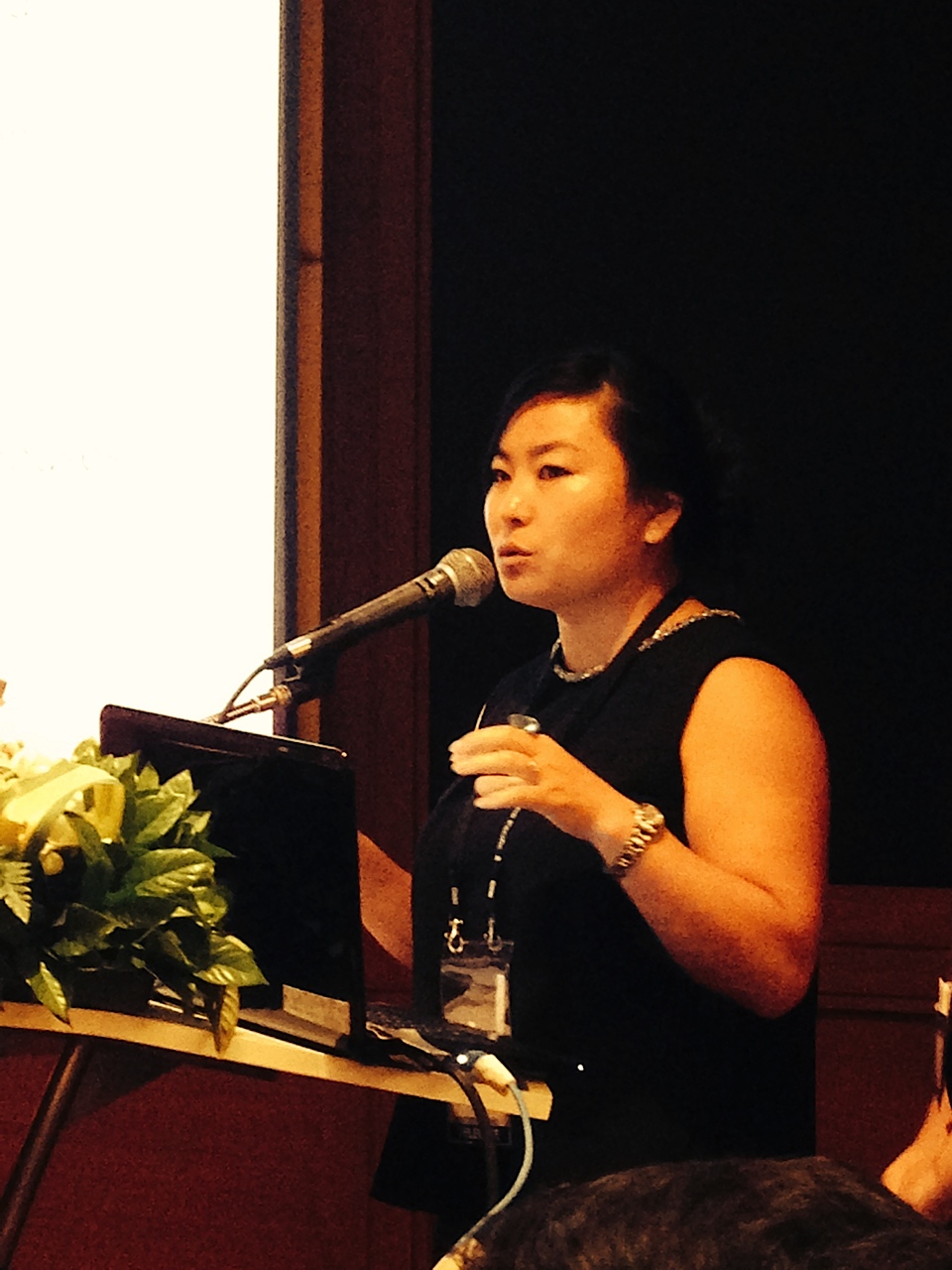Please join Asia Catalyst in a series of workshops, roundtables, and presentations on HIV/AIDS and human rights in Asia. Look for us at our Global Village, or online at asiacatalyst.org, @saralmdavis, and https://www.facebook.com/asiacatalyst
[PROFILE] Lanlan: Leading the Fight for Acceptance of Sex Workers in China

Lanlan, a founding member and now executive director of Tianjin Xin’ai (天津信爱)was born in 1978, a time of great economic change for China. After dropping out of school at thirteen, Lanlan tried her hand at farming and eventually found work in a restaurant, chopping vegetables and washing dishes. In 2000, after the birth of her daughter, Lanlan turned to sex work to support her child and aging parents. She was motivated to start a sex worker support group when she began to feel, as she says, that “AIDS NGO staff could not relate to sex workers or their particular needs.” Today, Tianjin Xin’ai conducts outreach to sex workers, providing them with occupational safety training, health training, and legal training. The mission, says Lanlan, is self-confidence, self-respect, and mutual support.
Because of restrictive U.S. visa policies, Lanlan may be one of the few sex workers in
attendance at the AIDS 2012 conference this year. Lanlan spoke to Asia Catalyst about her own work and why she looking forward to Washington, DC.
[NEWS] CHINA’S CHONGQING CITY REFORMS LAW ON SEX WORK/ 重庆市对卖淫嫖娼者不再进行劳动教养
New changes to Chongqing City’s local laws now eliminate reeducation through labor as a form of punishment for sex workers and their clients. China’s reeducation through labor system allows police to sentence people without trial for minor crimes. While far from decriminalizing sex work Professor Yang Weidong of the National School of Administration notes that with this important step ‘the legitimacy of reeducation through labor has been questioned.’ Read the article here (in Chinese.)
[COMMENTARY] Sex Work is Work, Plenary Speech by Kaythi Win
By Kthi Win
Plenery speech by Kaythi Win, Chairperson of Asia Pacific Network of Sex Workers, at Association of Women in Development Forum forum in Istanbul on April 21, 2012. See the exciting video here.
Hello everybody,
I am Kthi Win from Myanmar and I am a sex worker. I manage a national organization for female, male & transgender sex workers in Burma & I am also the chairperson of the Asia Pacific Network of Sex Workers. Until now, organizing anything in Myanmar has been very difficult. And people ask, “how did you set up a national program for sex workers?” And my answer to them is “Our work is illegal. Every night we manage to earn money without getting arrested by the police. We used to work and organize together, so we use this knowledge in order to work out how we can set up the National Network without making the government angry”.
This topic is about transforming economic power. I want to say to you, that when a woman makes the decision to sell sex, she has already made the decision to empower herself economically. What we do in organizing sex workers, is we build on the power that the sex worker has already taken for herself – the decision to not be poor.
[COMMENTARY] Promoting Mental Health Among China’s Sex Workers
By Willa Dong
When the health needs of female sex workers (FSWs) are discussed, reproductive health and preventing HIV/AIDS are often the first things that are brought up. However, like any other person, a sex worker has a variety of health needs.
I became interested exploring these needs and trying to understand the extent to which mental health is a priority for FSWs last September. Since then, I have looked at these issues in Shenzhen, China, through formal interviews with sex workers and also simply by spending time at a karaoke bar, beauty salons, and in neighborhoods, to get to know sex workers, mommies, and clients. I chose to do a smaller, qualitative study because it was important for me as a non-sex worker to understand the perspectives of sex workers, who already have a clear idea of their needs.




